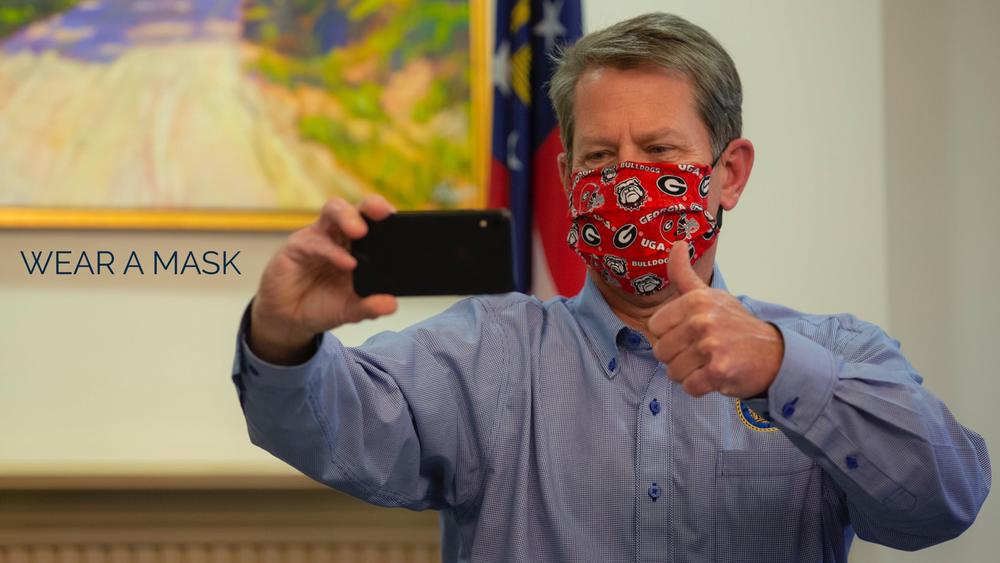Section Branding
Header Content
Gov. Kemp: 'Wear Your Mask, Georgia'
Primary Content
Gov. Brian Kemp won't make face masks mandatory, but he's visiting Albany, Augusta, Columbus, Dalton, Savannah and Valdosta ahead of the holiday weekend to encourage everyone to heed public health advice and wear a mask to mitigate the spread of coronavirus.
Kemp also extended the public health state of emergency to Aug. 11. The emergency order was set to expire at the end of this month.
Monday's executive order continues to require social distancing, bans gatherings of more than 50 people unless there is 6 feet between each person, outlines mandatory criteria for businesses, and requires sheltering in place for those living in long-term care facilities and the medically fragile.
"While we continue to see a decreasing case fatality rate, expanded testing, and adequate hospital surge capacity, in recent days, Georgia has seen an increase in new cases reported and current hospitalizations," Kemp said in a news release.
Health experts, including Emory University's Dr. Carlos del Rio, say governors should lead by example by wearing a mask or face shield, but that they should also require people to wear face coverings to protect as many people as possible.
As cases of #Covid_19 are again in an exponential growth phase it means that the Ro is again > 1 (likely 2.5-3) in all these states. The window is rapidly closing for governors in these five states to require face masks. What are they waiting for? pic.twitter.com/R3OWArXIWt— Carlos del Rio (@CarlosdelRio7) June 29, 2020
RELATED: Savannah To Mandate Masks As COVID-19 Cases Rise
The state’s COVID-19 fatality rate (3.6%) is the lowest it has been since April 15, according to Kemp's office. Since the beginning of the COVID-19 pandemic, 2,784 people have died in Georgia.
"We continue to robustly test in communities across Georgia, and preliminary data from the Department of Public Health indicates – through contact tracing interviews – that case increases seem to be connected primarily to workplace settings, houses of worship, and social gatherings," press secretary Cody Hall said.
Most of the cases in Georgia were reported in and around the metro Atlanta area, but experts said rural communities where people live and work in crowded conditions were most at risk.
Emory University and the Georgia Department of Public Health found the highest per capita rates are showing up in rural parts of the state among agricultural workers, such as poultry processors and migrant crop pickers.
MORE: As Georgia Sees Highest Coronavirus Numbers Ever, Experts Say Poultry, Ag Workers Most At Risk
Georgia reported more than 2,200 additional COVID-19 cases Sunday, a new high of daily reported cases as confirmed infections continue to rise.
The number of reported cases on Sunday eclipsed the previous highest daily total of 1,990 reported on Saturday.
Georgia confirmed more than 77,000 cases, but the number of infections is believed to be far higher because many people have not been tested, and studies suggest people can be infected with the virus without feeling sick.
"The spike in cases we see now can be directly related to Memorial Day weekend when people went out in force," Del Rio said on Twitter. "Each one person infected then has caused 406 infections in 30 days."


